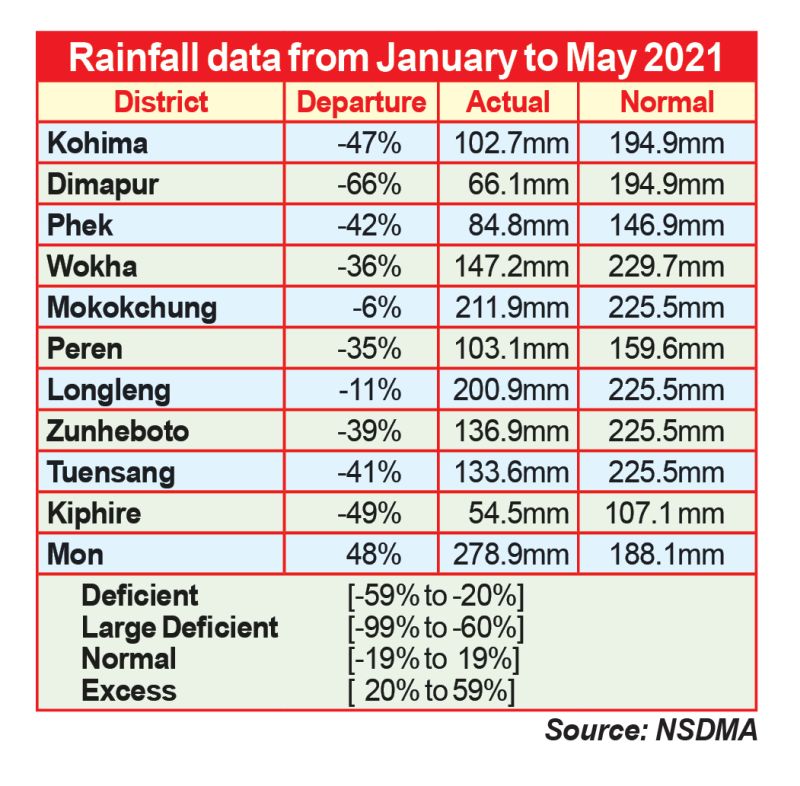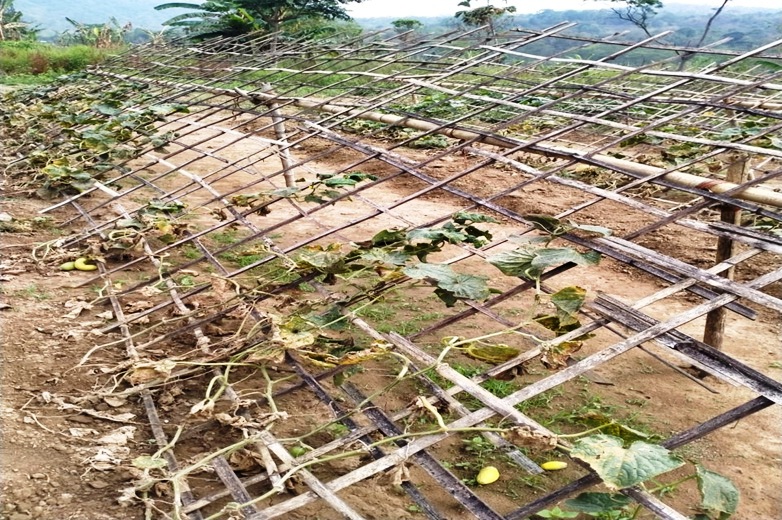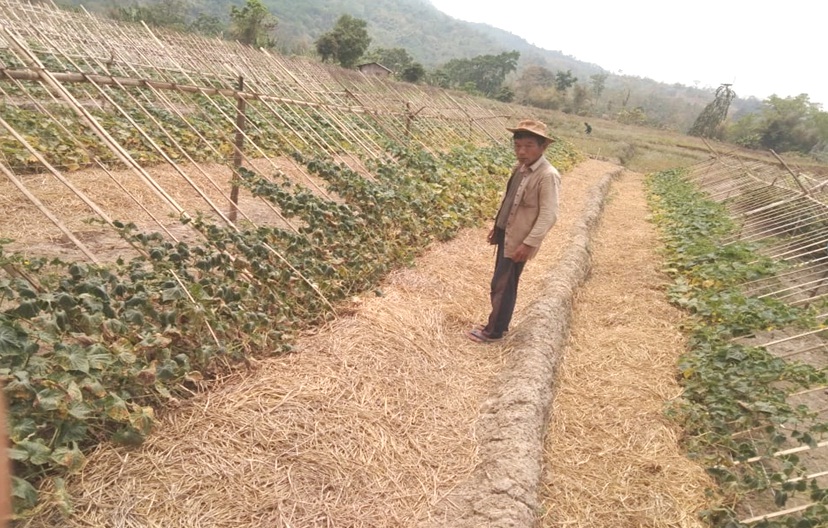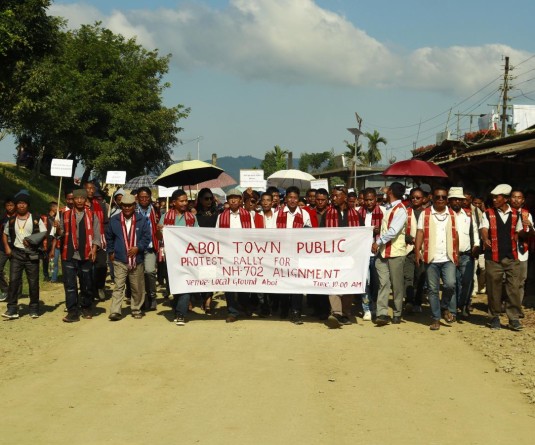Deficient rainfall has adversely impacted germination of planted seeds in jhum and paddy fields across the state. (Morung Photo for representational purpose)
.jpg)
Our Correspondent
Kohima | June 16
Nagaland state is witnessing a drought-like situation due to delayed and erratic rains. At least 70 percent of the state’s farmers are involved in Jhum cultivation, but with hardly any rains since December 2020 till April 2021, the agriculture and horticulture crops under jhum have been adversely affected leading to poor germination and wilting of standing crops.
This was communicated to the people of Nagaland on Wednesday through a press conference addressed by Minister for Agriculture and Cooperation G Kaito Aye, Horticulture & Border Affairs Advisor Mhathung Yanthan, Agriculture Production Commissioner Y Kikheto Sema and other officials from agri and allied departments.
Deficient rains affect 68,662 ha of jhum fields
The area affected by deficient rains amounts to 68,662 ha of jhum fields in 915 villages affecting in almost all the districts. The officials informed that Terraced Rice Cultivation (upland) & Wet Terraced Rice Cultivation has also been affected due to deficient monsoon rains in all the districts causing delay in land preparation and sowing.
If the same trend continues till July then the farmers may fail to undertake cultivation activities, they said.
The rice production of the state which was 5.51 lakh MT for the year 2020-21 is now anticipated to reduce to 1.66 Lakh MT during the current year, a reduction of 70 percent, if the present dry spell continues.
The shortage of rainfall has not only affected the production of normal seasonal crops but it has also affected commercial crops like large cardamom, fruits and vegetables and other livestock such as fisheries, piggeries etc, said Kikheto.

A framer stands in his field where cucumber crop has failed due to drought like condition at Kinunger village under Mokokchung district.
FAW affects 3048.45 hectares of maize crop
Adding to the woes, the agricultural scenario was further aggravated by Fall Army Worm (FAW) infestations during the last week of March affecting 3048.45 hectares of maize crops covering 334 villages. Despite timely intervention by the departments, the FAW infestation could not be completely neutralized.
Foreseeing the drought-like situation, the APC convened a meeting of all the Agri & Allied Department on April 27 in Kohima and had a thread bare discussion to tackle the situation.
Accordingly, the Agri & Allied departments, distributed seeds and planting materials for re-sowing in the affected jhum fields. However even after this action, it was not able to achieve the desired result due to shortfall of rain.

Cucumber Crop Failure due to Drought like condition at Aliba
Rio intervenes to take stock of situation
On June 15, Nagaland’s Chief Minister Neiphiu Rio convened a meeting of Agri & Horti Departments to take stock of the drought –like situation in the state in the presence of minister G Kaito Aye and advisor Mhathung Yanthan. They were apprised on the present scenario by the APC.
With more than 70 percent of the state population dependent on agriculture for their livelihood, the damage is going to be huge with anticipated crop production loss of up to 70 percent. This would require the assistance from the Government of India to mitigate the effects of deficient rains in the state.
Kaito said that if the cultivation activities could not be done this month (June), it would be too late. He said the state government will take up the matter with MHA, Government of India to rescue the farmers.
Kithan said that scanty rainfall has affected jhum areas, TRC and foothill areas where agricultural activities are solely dependent on availability of water. “The state government is also doing all it can in order to mitigate the impact of drought-like situation in Nagaland,” he said.
Kithan also stated that the government is involving experts and agricultural research institutions to address the situation.

Cucumber Crop Failure due to Drought like condition at Kinunger1
Core committee of agri & allied departments formed
In the meantime, it was informed that the Agri & Allied department is also planning to distribute seeds such as potato, oil seeds, vegetables for early Rabi season from the month of September and October to compensate the farmers for the anticipated loss.
A core committee of the departments headed by the APC has been formed to monitor and review the ground situation timely as per the reports received from the field.
In continuation of the earlier direction, all the officers of agri & allied departments have been directed by the APC to remain in station and closely monitor the ground situation.
.jpg)
.jpg)
.jpeg)





